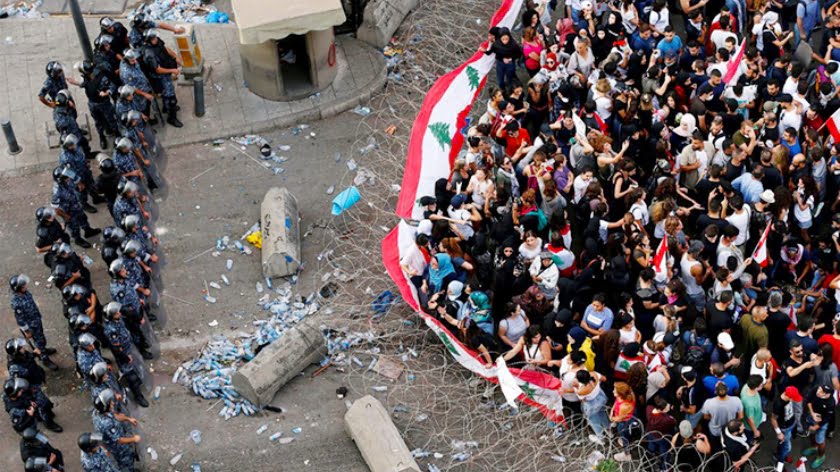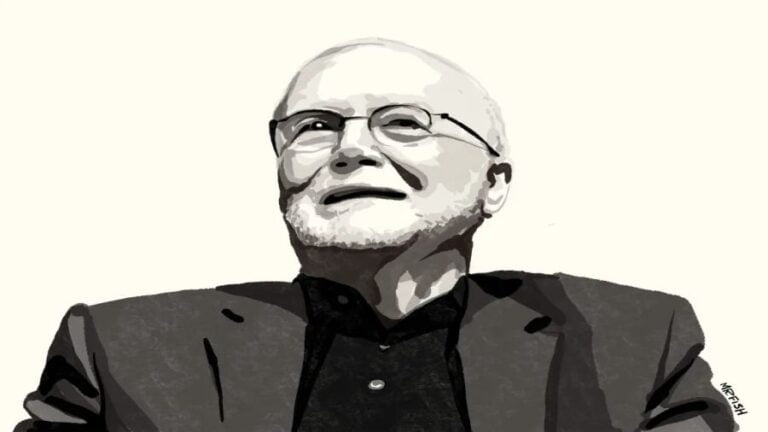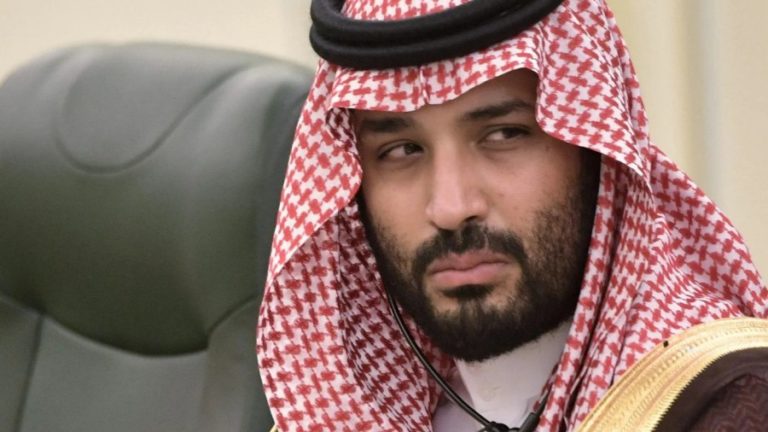Lebanon on Fire as Protests and Demonstrations Rage On
Saad Hariri announced that he was leaving his post as Prime Minister of Lebanon, and stated that he had come to a dead-end after two weeks of mass protests in Lebanon, during which its participants accused the government of corruption and creating conditions for a possible economic collapse. Saad Hariri served in this role since December 2016.
Forceful demonstrations erupted all over the country on 17 October when the Lebanese government announced tax hikes on tobacco and internet calling applications. Participants in the mass protests, precipitated by these developments, have set up road and motorway blockades and demanded that the government resigned and political reforms were carried out. However, after the head of state announced the start of a number of economic reforms and that anti-corruption measures would be taken, thousands of protesters, having deemed such actions as insufficient, once again came out into the streets all over the country, stating that the government was incapable of implementing sound economic policies, and accusing politicians of rampant corruption and abuses of power.
Interestingly, many politicians in the nation are of completely different opinions (which coincide with their religious views and party affiliations) regarding the situation in Lebanon. For instance, President Michel Aoun has expressed his solidarity with the demonstrators, who came out in protest all over the nation in recent days in order to show how much the people of Lebanon were suffering. Yet the Patriarch of Lebanon’s Maronite church, Bechara Boutros al-Rahi, stated that the reforms adopted to calm the nation-wide protests were the right “first step”, but a new Cabinet of Lebanon would need to implement them. In his televised address, Bechara Boutros al-Rahi said that he supported the demonstrators, but also urged them to exercise restraint.
Speaker of the Parliament of Lebanon Nabih Berri, on the other hand, stated that the resignation of all the members of the government (headed by Saad Hariri) would not resolve the deep-seated socio-economic crisis in the country and would only exacerbate the situation. The Lebanese daily newspaper Al Joumhouria reported that he thought the government ought to take immediate measures aimed at kick-starting economic reforms in Lebanon.
While one group of protesters put up tents in main squares, the other continued with its road blockades. In the meantime, they continue loudly chanting one of their key rallying cries: “All of them means all of them.” Apparently, it refers to all the political organizations as well as numerous parties in Lebanon.
All of this spurred Arabic media outlets to report that the demonstrators had received operational and financial support from a number of Arabic nations. Well-informed sources told Al-Ahed News that these countries were the ones paying for the logistics costs and all the other expenses, including those for transportation, umbrellas, tents with Lebanese flags, portable toilet booths, and supplies of food and water. They also said that everyone who obstructed the normal flow of traffic on roads on any given day received $100 each, and anyone who remained in or around a tent overnight got $150 per head.
The protesters welcomed Saad Hariri’s resignation but it is unclear what would happen next. He can remain in the role of the acting Prime Minister so as to continue with his duties. And for now, this is the only way out of the crisis. Lebanese media outlets have reported that as acting Prime Minister Saad Hariri promised to put together a cabinet of technocrats that would not include any other political party representatives.
In the meantime, the economic crisis engulfing the nation is worsening. According to Reuters, entrepreneurs in Beirut are starting to conduct transactions in US dollars, and the Syndicate of Gas Station Owners has warned consumers that there was only several days’ worth of fuel left because of interruptions in supply.
It is well known that Lebanon has experienced long-term crises before. A complex system ensures division of power among different groups so that the highest posts are occupied by Shiites, Sunnis and Christians. So far it has prevented the nation from succumbing to civil war, but also created wide patronage networks and led to nepotism, thus, for the most part, preventing the government from making important decisions or providing public services in a reliable manner. Incidentally, the protesters are calling for an overhaul of the entire political system with the view of forming a secular government capable of solving many issues plaguing the nation in the interest of all Lebanese people.
It certainly makes sense to focus on the viewpoint and reaction of Tehran in this case. It is well known that Saad Hariri had previously announced he was leaving his post under fairly strange circumstances in November 2017. He made this statement abroad, apparently, during his visit to Saudi Arabia. At the time, sources close to Saad Hariri from the upper echelons of power and high-level government officials of Lebanon pointed out that Riyadh had forced the then Prime Minister to resign from his post by placing him under house arrest. Michel Aoun also stated that the Lebanese Prime Minister was being held by Saudi Arabia against his will. This led to speculation that Riyadh had forced Saad Hariri to resign on account of the rise in tensions, at the time, in the relationship between the oil-rich kingdom and Iran, which has always had close ties with and exerted influence on the numerous parties of Lebanon.
At present, a spokesperson for Iran’s Ministry of Foreign Affairs, Abbas Mousavi, said that Tehran stressed the need for unity among all of Lebanon’s clans, parties and people. The Ministry of Foreign Affairs has urged the political parties and politicians to preserve unity and ensure mutual understanding in order to resolve the current tricky situation after the Prime Minister of Lebanon Saad Hariri had left his post. Abbas Mousavi called for “unity among all political groups and parties in Lebanon to maintain security and stability in the country and meet the legitimate demands of the Lebanese people.”
Only time will tell what means will be used to deal with the political and economic crises in this nation, and whether they will be resolved in the interests of Lebanese people. Still, at the same time, it is readily apparent that as the state of affairs in Syria is improving (a political dialogue has begun there), the situations in both Lebanon and Iraq, where protests had started practically simultaneously, are getting worse. We are left with a fairly clear impression that many forces, within and outside the country, have skillfully taken advantage of the hardships there to make a move in this fairly important region in their own interests. This is evident and the Supreme Leader of Iran Ayatollah Sayyid Ali Hosseini Khamenei has clearly stated as such. He also warned that the recent upheavals in a number of nations in the region, including Iraq and Lebanon, are the result of interference by Washington, several other Western countries and reactionary regimes in this part of the world.
By Viktor Mikhin
Source: New Eastern Outlook







